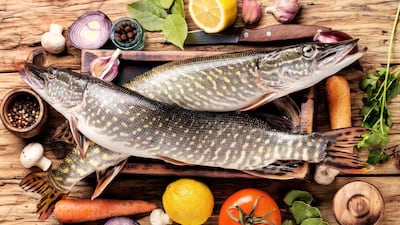The internet has been a wonderful boon during times of self-isolation and social distancing, being a source of instant communication and unlimited entertainment. However, it has also fuelled certain myths when it comes to the coronavirus, especially in terms of consumption habits. In light of this, experts in the field of food safety management share some tips and ground rules to keep in mind.
Basic guidelines for handling food
According to Kaushal Sutaria, the managing director of MyEasyISO, a food management system automation software, there are four immediate things to keep in mind when handling food:
- Wash hands and surfaces often
- Separate foods from unclean surfaces to avoid risk of cross contamination
- Cook to the right temperature
- Refrigerate promptly and properly
“Before preparing food, it is recommended you wash your hands with soap and water. Lather until your elbows, scrubbing your nails and in-between fingers for at least 20 seconds (you can sing "Happy Birthday" twice to know you’ve completed the allocated time). Then rinse and dry your hands using tissue paper,” he says.
He advises residents to disinfect surfaces more often than they would usually do, and ensure all utensils such as cutting boards, strainers and containers are cleaned and dried to avoid any cross contamination. Finally fruits and vegetables have to be washed thoroughly with running water to remove microorganisms on the surface.
“You can also peel them using a cleaned peeler or knife. Soaking for more than a few minutes will allow potential microorganisms in vegetables to proliferate more so it is advisable to cook immediately at the proper temperature.”
Washing raw meat is not recommended, however. "Raw meat must be cooked at a core temperature of minimum 70 degrees Celsius for two minutes. This will ensure heat penetration inside the meat resulting to the destruction of pathogenic microorganisms."
According to Dr M Pandian, a food safety consultant and trainer in GHP Quality Consultants, there is no big difference in the way vegetables and raw meat need to be handled as the heat from cooking makes them safe to consume. However, thorough washing, preferably with hot water, is recommended in the case of items that are eaten raw – fruits and salad leaves are examples.
“Chlorine tablets are often used to clean fruits and vegetables for commercial purposes. This can be used as an extra precaution at home but is not mandatory,” he says.
Debunking myths
A rumour that has been making the rounds is that consuming meat may possibly increase the chances of catching the virus. Both Pandian and Sutaria rubbish this as false information. “There is no evidence to support this,” says Sutaria. “The coronavirus infects human respiratory systems after coming in contact with droplets from surfaces and not animals.”
That being said, he adds that since it is transmissible through person-to-person contact, it's imperative that the person handling the meat is using following certain standards. "They must be wearing disposable gloves and face masks observe personal hygiene. When purchasing frozen meat, ensure it is properly packed, labelled and kept at a frozen state in a freezer having a temperature of -18°C."
Other coronavirus-related food rumours he says are not true are that eating bananas can prevent infection and that drinking warm water can kill the virus.
After preparation
People must be equally careful when handling cooked food, says Pandian. “Our understanding is that it can spread through sneezing, coughing, blowing the nose, with residue staying on surfaces hours afterwards. That’s why it’s important to make no one is coughing or sneezing in the kitchen. Utensils and cutlery must be properly cleaned using standard dish cleaning agents. Tables can be wiped down with hydrogen peroxide or chlorine-based disinfectants,” he says, adding that these measures are in case of contact with someone who tested positive for coronavirus.


